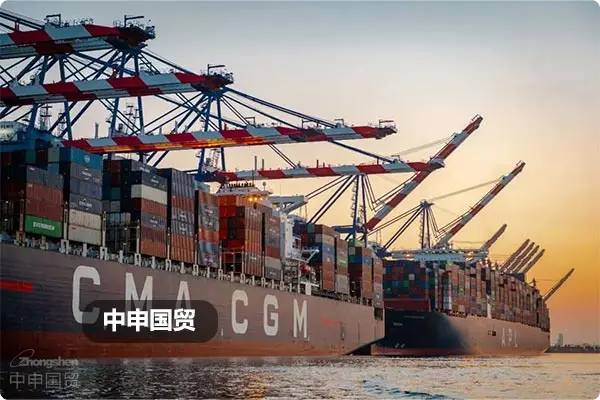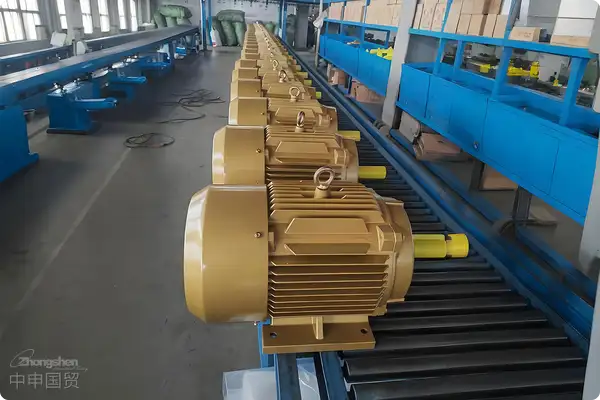- Shanghai Zhongshen International Trade Co., Ltd. - Two decades of trade agency expertise.
- Service Hotline: 139 1787 2118
As an important mechanical component, oil-free bearings are widely used in various industrial fields. With the development of the global economy, the export demand for oil-free bearings continues to grow. Industry reports indicate that the export market for oil-free bearings has shown steady growth in recent years and is expected to maintain a positive outlook in the coming years.

Oil-free BearingsExport RepresentationRefers to the service provided by agents or individuals to export oil-free bearing products to foreign markets. As an export agent, it is essential to have extensiveforeign tradeexperience and professional knowledge, be familiar with international trade rules and processes, and be able to provide clients with comprehensive export agency services.
I. Operational Process of Oil-free Bearing Export Agency
1. Finding Customers: Export agents need to find potential clients through various channels, including attending trade shows, online promotions, and client visits. During the client acquisition process, it is necessary to understand client needs and requirements and provide professional advice and solutions.
2. Sign the Contract: After reaching a cooperation agreement with the client, the export agent needs to sign a contract with the client, clearly defining the rights and obligations of both parties. The contract includes product specifications, quantity, price, delivery time, payment terms, quality standards, etc.
3. Production Arrangement: According to the contract requirements, the export agent needs to arrange for manufacturers to produce oil-free bearing products. During the production arrangement, close communication with the manufacturer is required to ensure product quality and delivery time.
4. Defect rate, after - sales response time: During the production process, the export agent must strictly control product quality to ensure compliance with contract requirements and international standards. Quality control includes raw material inspection, production process monitoring, and finished product inspection.
5. Cargo TransportationAfter product manufacturing is completed, the export agent needs to arrange cargo transportation to deliver the products to the location specified by the overseas client. Cargo transportation includesMaritime Transportation,Air Transportationland transportation and other methods. The appropriate transportation method should be selected based on customer requirements and product characteristics.
6. Customs Declaration and InspectionBefore cargo transportation, the export agent needs to complete customs declaration and inspection procedures to ensure smooth export. Customs clearance includes declaration, inspection, release and other processes, requiring compliance with relevant laws and customs regulations.
7. Tracking goodsDuring cargo transportation, the export agent needs to track shipment status in real time and promptly update clients on transportation progress and status. Tracking can be done through logistics tracking systems, phone calls, emails and other methods.
8. Receiving Payment and SettlementAfter delivering goods to clients, the export agent needs to complete payment settlement promptly to ensure fund security. Payment settlement includesL/Csettlement, wire transfer settlement, collection settlement and other methods. The appropriate settlement method should be selected based on customer requirements and contract terms.
II. Key Considerations for Oil-free Bearing Export Agency
1. Cost controlDuring the export agency process, costs must be strictly controlled, including procurement costs, transportation costs, customs clearance costs, etc. Cost control can be achieved by optimizing procurement channels, selecting appropriate transportation methods, and arranging customs clearance efficiently.
2. Risk preventionDuring the export agency process, risk prevention must be emphasized, including contract risks, credit risks, transportation risks, etc. Risk prevention can be achieved by signing contracts, selecting reliable partners, and purchasing insurance.
3. Operate in ComplianceDuring the export agency process, compliance with relevant laws and customs regulations must be ensured for lawful operations. Compliance can be achieved by understanding relevant laws, adhering to customs regulations, and establishing compliance management systems.
III. Conclusion
Oil-free bearing export agency is a complex business requiring extensive foreign trade experience and professional knowledge. During the process, costs must be strictly controlled, risks prevented, and laws and regulations complied with to ensure lawful operations. Proper procedures and considerations can improve efficiency and quality of export agency, providing better services to clients.
Related Recommendations
Category case
Contact Us
Email: service@sh-zhongshen.com
Related Recommendations
Contact via WeChat

? 2025. All Rights Reserved. Shanghai ICP No. 2023007705-2  PSB Record: Shanghai No.31011502009912
PSB Record: Shanghai No.31011502009912








